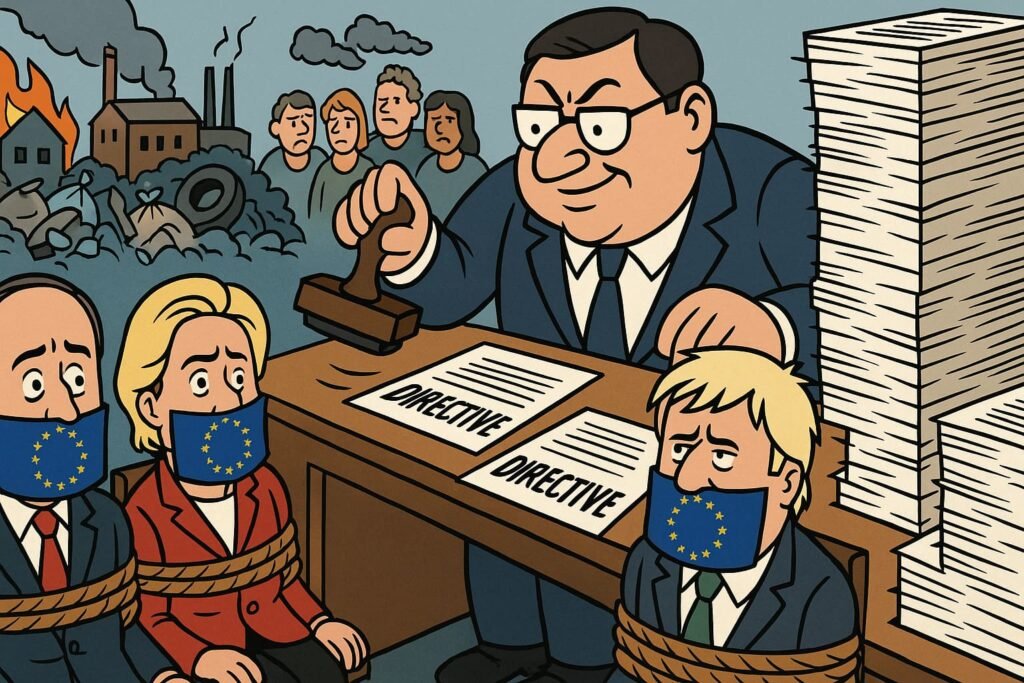Brussels Rules Without Consent
The EU loves to call itself “democratic.” Yet it churns out EU-wide rules that override national laws — without ever asking the citizens of each nation directly. The result? Governments that can’t govern, leaders who lose their will to lead, and a Union that still can’t act decisively.
Table of contents
How It Works
The fine print is simple: EU regulations and directives are supreme. They don’t politely suggest; they replace. If your national parliament writes a law that contradicts Brussels’ paperwork, tough luck. The Brussels version wins.
National governments become glorified middle managers — paid to implement rules written by distant bureaucrats.
Effect 1: Governments That Can’t Act
Your elected government? Handcuffed. Want to change energy policy, farming rules, or data privacy laws? Doesn’t matter — the EU already wrote the manual. Local politics becomes theatre: politicians argue, hold debates, shake fists… only to admit that “EU law requires us to…”
It’s sovereignty outsourced.
Effect 2: Leaders Who Stop Leading
What happens when leaders realise they don’t actually have power? They stop trying. Why waste energy crafting bold policies when Brussels has the final veto? Initiative drains away, ministers hide behind EU rules, and “national strategy” turns into copy-and-paste.
It’s politics on autopilot.
The EU’s Own Problem: A Union That Crawls
And here’s the irony. While national governments are paralysed, the EU itself isn’t exactly a sleek machine. It’s slow, clumsy, and allergic to risk. By the time Brussels agrees on a directive, the problem has usually changed.
So we get the worst of both worlds:
- Nations that can’t act.
- A Union that can’t act fast enough.
The supposed “ever closer Union” has produced an ever-weaker politics — a strange theatre where nobody truly governs.
Bigger Picture
This is the EU’s quiet trick: it centralises authority while dodging accountability. No referendum asked you if you wanted your national parliament sidelined. Yet here we are — ruled by a sprawling bureaucracy that loves process, hates speed, and never admits mistakes.
Europe doesn’t suffer from a lack of leaders. It suffers from leaders locked in a system designed to neuter them.
FAQ
Why do EU rules override national law?
Because the EU treaties give regulations and directives supremacy — they’re binding on all member states.
Does this mean national parliaments are useless?
Not useless, but limited. They mostly adjust to EU rules instead of making independent policy.
Is the EU fast at solving problems?
No. The EU is famous for slow, consensus-driven decision-making that often arrives too late.
So who really governs Europe?
A mix of unelected bureaucrats, lobbyists, and technocrats in Brussels — while national politicians play along.



